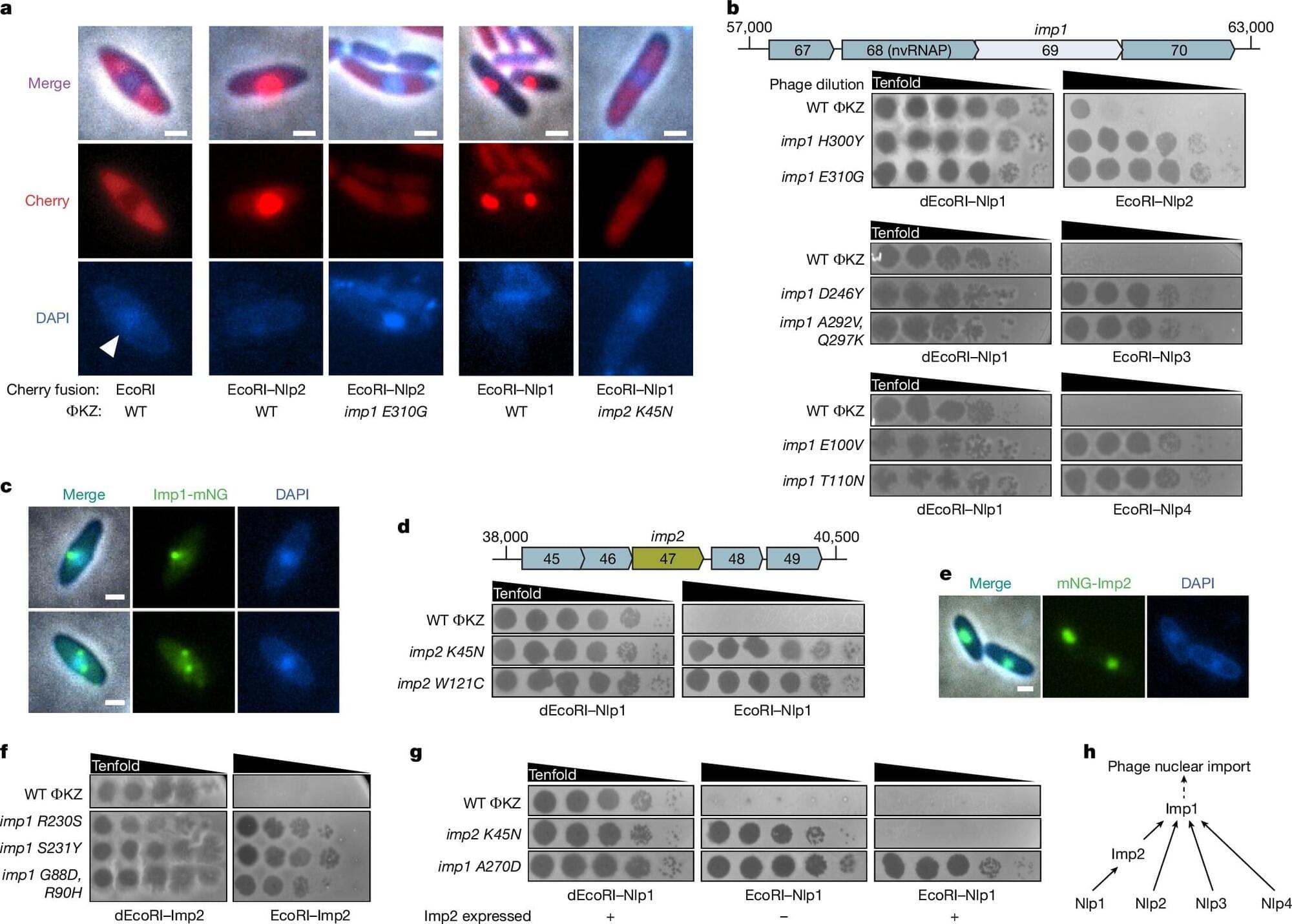Phages are viruses that attack bacteria by injecting their DNA, then usurping bacterial machinery to reproduce. Eventually, they make so many copies of themselves that the bacteria burst. By looking at this process in a unique type of virus called a jumbo phage, scientists hope to learn how to make new antibiotics that can address the growing crisis of resistance.
The jumbo phage has more than four times the DNA of an average phage. It uses this genetic material to create a restricted space inside bacteria where it can copy its DNA while surrounded by a protective shield made of protein.
Researchers at UC San Francisco have discovered that the shield works via a set of “secret handshakes.” They allow only a specific set of useful proteins to pass through.
